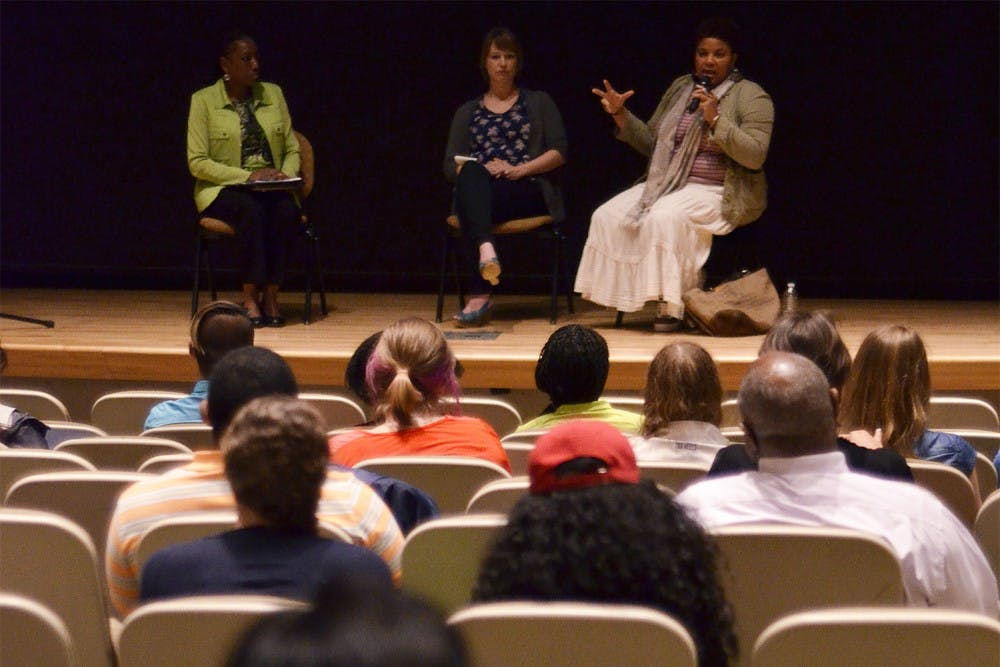“The meek shall inherit the earth, it is said. This presents a very bleak image to those who live in occupied territory.”
The documentary, Ferguson: A Report from Occupied Territory, was screened at the Sonja Haynes Stone Center on Monday night. It documents the weeks of unrest in Ferguson, Missouri following the grand jury’s decision not to indict white police officer Darren Wilson for the killing of black teenager Michael Brown. The film documented Ferguson residents’ daily struggle with police.
Co-producer Katina Parker said watching the film for the first time in a while was an emotional reminder of her several months in Ferguson.
“I think for as dangerous as the film seems to watch, it’s difficult to capture how dangerous things really were — there’s some things the film just doesn’t get like walking around in goggles and an aerator every day and wearing a bulletproof vest,” she said.
She said she is following in her mother and grandfather’s footsteps.
“I knew I came from strong stock — I had some serious convictions about what we have now packaged as social justice, but as a kid I just thought, ‘This shit is wrong.’”
Field researcher Lorien Olive, who worked on the film, said she wanted to prompt white people to pay attention to social injustices happening in their hometowns.
“Doing this, I wanted to put the viewer in the situation of being ground through this system that has no mercy on you, in which you have no privacy and no dignity, and in which your priorities in life don’t matter at all and how that would feel,” said Olive, who is a Ph.D. student at Duke University.



